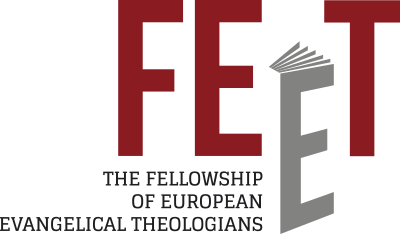You must be born again
Introduction I recently heard a sermon that helped me understand why some of the so-called historical Protestant Churches are caught up in doctrinal and ethical relativism and confusion. The pastor had chosen the story of Nicodemus who came to Jesus at night (Jn 3:1-15) so as to discuss the question of conversion: « You must be born again »!
In the first part of his sermon, he was careful to mention that the Evangelical approach to the question was, as far as he was concerned, suspect and should not be retained. He was not going to speak of conversion in terms of a rebirth and a radical change of lifestyle followed by a testimony attesting that it was the Lord who had done it all and initiated a new beginning!
Dilemma and restauration The perspective the pastor developed centred on the contrast Jesus establishes in the narrative between natural and supernatural birth, while giving a specific interpretation to these key notions.
Natural birth actually refers to the essence of our humanity. Because we are limited and conditioned, we are prisoners of our human condition. In other words, the dilemma of the human creature is not moral but ontological. It is not related to the fact that they are rebels or sinners, but to the fact that they are finite beings, conditioned in their lifestyle. There is nothing they can do about it.
When I was a student at the University of Lausanne (Switzerland) in the sixties, I lived such an experience. Within the existential intellectual climate of the times the dilemma of humankind was related to their finiteness. I remember thinking, if that were the case why should I be responsible, why should I be accountable for such a determined state of things? The inner tension between this perspective and what I actually felt, confused in my inner being as a moral creature, left me in a state of uneasiness and alienation. A sense of helplessness invaded me as I contemplated such a profound injustice! This existential angst disappeared the moment I understood that my dilemma was in fact moral, that I had turned my back to my ultimate Vis-à-vis and as an autonomous being I didn’t really care for his wisdom and word.
The ontological view If the dilemma of the creature is ontological, how are we to understand Jesus when he says to Nicodemus « you must be born of the Spirit » (5, 6, 8)? According to the preacher I mentioned, rather than a change of nature or of lifestyle, we must understand this statement as an invitation to adopt a new outlook on life. Seeing things differently allows us to understand life as a gift of God and to recognise that he loves us just as we are. This implies a renewed self-awareness inviting us to continue our existence in the light of this enlarged perception. The change is in the outlook not in the lifestyle.
To consider our lives within a broader horizon is of upmost importance, but if the dilemma of the human creature is related to their finiteness and cultural conditioning, then God can only bless what is! There is no place for a call to repentance, a change of mind and of lifestyle, or indeed for a transforming divine action in the very depth of our inner beings, in other words, for a new birth and a new beginning! God can only bless us and the natural way of life we have inherited as finite and conditioned beings whatever that might be. Such an outlook accounts for the ethical behaviour adopted by many historical churches in the secular West which, disregarding the moral norms as revealed in Scripture, have endorsed lifestyles that reflect the fallen human condition.
The moral view If the dilemma of the image-bearers of God is moral, then everything falls into place: they are responsible for their thoughts and acts; they are accountable before the Creator and his Word; there is hope for a solution; the reconciliation they yearn for is revealed in the Lord’s redemptive plan fully manifested in the life, death and resurrection of Jesus Christ; as human creatures accomplish their cultural mandate, they can resist and overcome evil and injustice without fighting their ultimate Partner. There is indeed the promise of a new beginning and a new song as, in his loving kindness and justice, the living God is actively seeking out the estranged and transforming lives, even the whole of creation.
Pierre Berthoud Professor Emeritus, Faculté Jean Calvin Aix-en-Provence, FR

